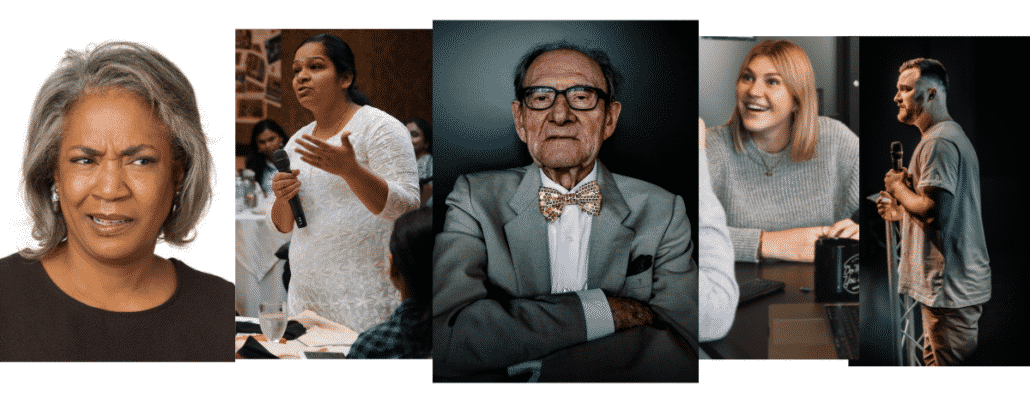The most powerful element of any message….
When my parents married they were dirt poor. My father had walked away from a life in the steel mill in South Wales and wanted to be a journalist. Living in a rented flat with two young girls in the early sixties, every penny was counted. He taught himself Pitman’s shorthand – a skill now almost extinct. After a badly paid spell as a reporter on the Oxford Mail he got an exciting new job as a Press Association journalist, in the lobby. For a poor lad from the backstreets of Cardiff, it was a big break. But he had no suits! Nothing he could wear in the Palace of Westminster. Mum’s father gave him some cast-offs but he was a much shorter rounder man than my Dad. Mum altered those suits and sewed turn-ups on the bottom, something that at the time was definitely not in fashion. But they did the job for a while. And my father went on to become a BBC reporter and presenter.
My parents’ struggle to get ahead, to have a professional and intellectual life rather than working in a factory is one of the stories that, 60 years later, still influences me. I feel so lucky to have interesting work.

And everyone has those stories. Stories of where they’ve come from or moments that defined the rest of their lives. All businesses have those stories too. They are too rarely told.
Most courses I run these days are just two or four hours, and very intense. Senior time-poor people who need to get ready for a media interview, a town hall or a presentation. There is no time to go digging for story gold.
But just occasionally we are booked for longer courses with the luxury of time to really help our clients glimpse the world through our lens.
Persuading people to tell stories as part of their professional communications is hard work. Sometimes, they can’t quite see the point.
However, when we create the safe space and the time to get a group of people to share a story, lots of magic happens. People connect with each other more and enjoy the experience.
But more importantly, we can demonstrate the power of stories: how they shift people’s perspective, how they touch something other than the analytical brain and yet still influence it.
It is not just stories about where leaders have come from. I remember helping with messaging to launch a ‘pick and mix’ home insurance product: all very dry until we dug out the story of a letter from an elderly customer. ‘My husband and I are in our eighties’ she wrote ‘our cycling days are long behind us so why am I paying to insure 2 bicycles as part of my home insurance.’ That letter had – in part – inspired the new product.
Many years ago, I worked on messaging a new pension product inspired by a CEO who said: ‘I watched my grandmother outlive her pension’. I remember that man saying to the room ‘but is that really interesting?’ Everyone shouted emphatically ‘yes’.
And the story of the Reverend Henry Duncan who founded the world’s first mutual savings bank in 1810 in Dumfriesshire, as a way of helping his parishioners manage poverty, is an inspiring story retold many times. The bank went on to become TSB and the Henry Duncan story is a pillar of that brand.
If your business is looking to talk about purpose, the hunt should be on to find stories to communicate that.
Learning to find, chose and create stories to use professionally, is simply about creating awareness. To use an analogy: If you not interested in nature, a bird in the garden is just a bird. But, once you stop to look, it is clearly a busy solitary blackbird or part of a gang of noisy sparrows. You just need to look.
If your job is to explain or lead with purpose look more. Tell more stories!
- Media Savvy Operators Know How to Place a Quote - May 21, 2024
- The Magic of Performance - May 14, 2024
- Our Top Tips: - May 8, 2024




Leave a Reply
Want to join the discussion?Feel free to contribute!